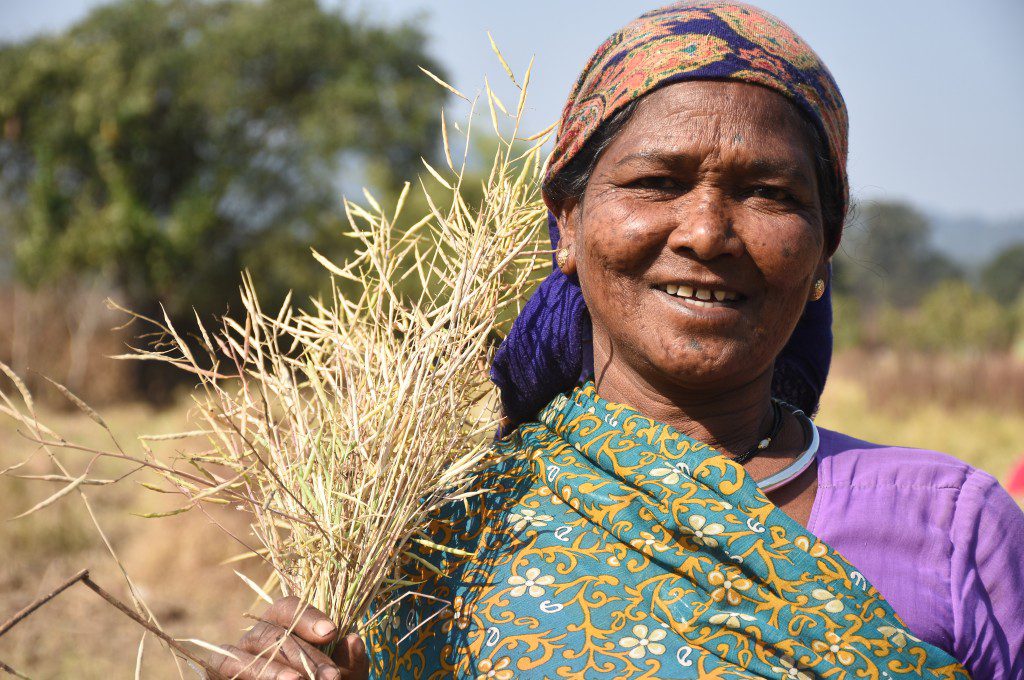Women’s empowerment is critical from the point of view of climate justice. Merely small shifts in agricultural practises and how we develop natural resources have the power to empower marginalised female farmers in remote rural areas. Small landholders like Savitri are affected the worst by climate change. Frequent and untimely spikes in the weather leave her and several others completely vulnerable. The yields from their farms (0.5 ha) are meagre, which results in the food grown needing to last longer. This would mean female farmers like Savitri lose some of their independence and rely on local money lenders. For instance, Savitri took a loan to feed her family at a rate as high as 10%. Her family got pushed into abject poverty within the last three years, thanks to COVID-19.
Her family of five (including her three daughters) was nearly losing hope! They could see no way out of the clutches of poverty. The land was exhausted due to using too many fertilisers. Even worse, whatever had finally grown on the small farm was constantly attacked by wild animals. The children were pulled out of schools, food was becoming scarce, and Savitri’s husband was losing his contracts for being unable to attend work after long exhausting night shifts on his farms. Sleepless nights after an entire day of hard labour were breaking them equally.
With the intervention of Udyogini, Savitri could turn around her life. Her friends told her about the focus of the NGO on women’s empowerment through entrepreneurship and livelihood development.
Savitri got enrolled in Udyogini’s agriculture entrepreneurship programme. She received training in organic farming and received seeds and other inputs to grow vegetables to earn cash. To tackle any attack from wild animals, she installed solar fencing. She soon joined the women’s entrepreneurship group (WEG). She was integrated into the agri-value chain promoted by Udyogini.
Since Savitri’s farm is a small patch, she mobilized her neighbors to optimize her returns on installing solar fencing. Thus, the impact of using green technology multiplied in this region. Her leadership skills have been very useful in strengthening the value chain. Her children are now back to school and eating better than ever. This year Savitri sold vegetables worth INR 40,000; with her husband no longer missing out on his share of sleep during the night, he can also earn well in his masonry work. They have repaid all their bad debts and are now delighted with the soil quality on their farm.
The transformation of Savitri’s life is not just a story of women’s empowerment and entrepreneurship; it is also a testimony to climate justice.



